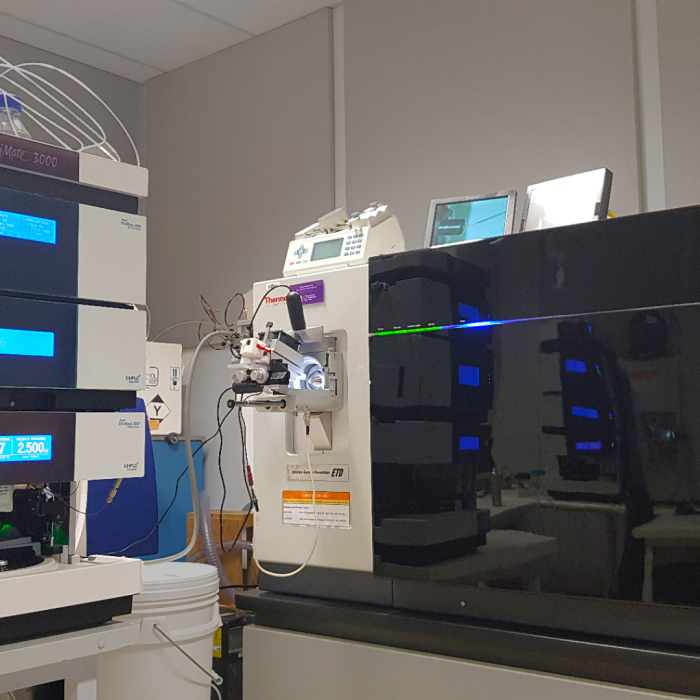Thermo Orbitrap Fusion Lumos

Description
The Orbitrap Fusion Lumos includes an exclusive Tribrid design incorporating 3 different mass analysers (a quadrupole, an ion trap and an Orbitrap), enabling a large number of different experiments to be performed with a single mass spectrometer. Software developments have also simplified the set-up of complex experiments.
Other significant technological advances including a brighter ion source and improved vacuum/pumping. Additional enhancements of the Lumos include greater scan speed, high mass resolving power, sensitivity and an improved ETD capability and EThcD fragmentation. These attributes make available a versatile system that makes detection of very low abundance proteins and lipids easier and more reproducible.
Specifications
-
- Low flow liquid chromatography system
- Flow rate range: 50 nL/min to 50 µL/min
-
- Ion Source: Adjustable heated electrospray ionization (HESI) probe
- Resolving power: Up to 500,000 FWHM at m/z 200.
- Fragmentation Techniques: CID, HCD, and optional ETD and EThcD available at any stage of MSn.
Applications
- Bottom-up proteomics
- ETD (Electron Transfer Dissociation) experiments
- Post-Translational Modification (PTM) studies
- Lipidomics analyses
Instrument location
Bioanalytical Mass Spectrometry Facility
Room 401, Level 4 North West
Wallace Wurth Building (C27)
UNSW Sydney, NSW 2033
Phone: 02 9385 1717
Email: bmsf@unsw.edu.au
A/Prof Mark Raftery
-
Phone
02 9385 1892 -
Email
m.raftery@unsw.edu.au
Dr Ling Zhong
-
Phone
02 9385 2717 -
Email
l.zhong@unsw.edu.au
Parent facility
Explore more instruments, facilities & services
Our infrastructure and expertise are accessible to UNSW students and staff, external researchers, government, and industry.




